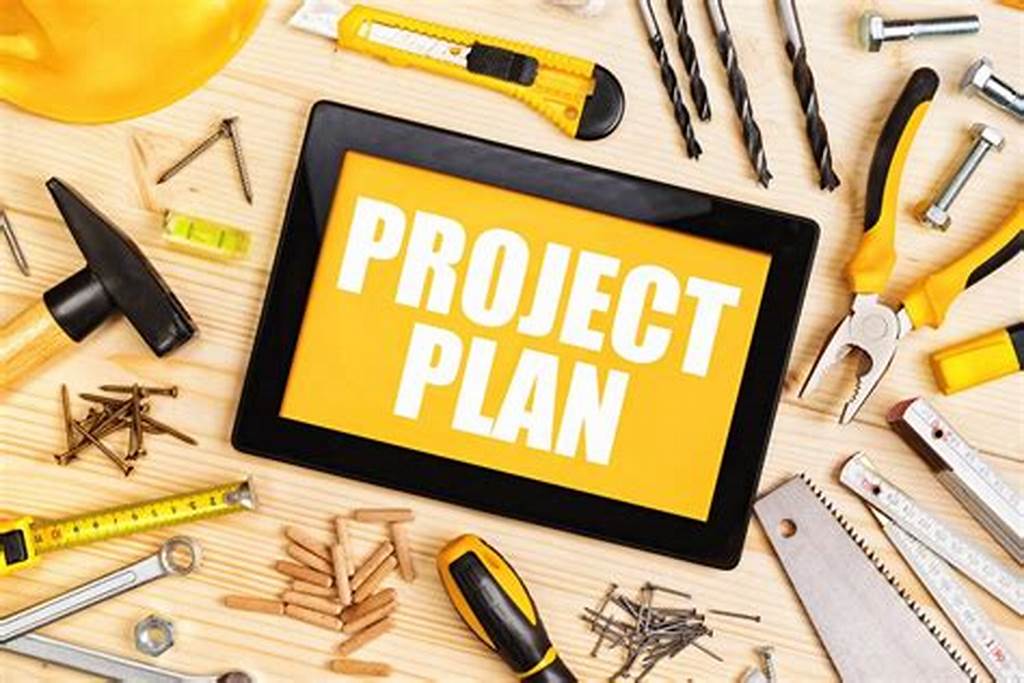Home improvement projects can be exciting yet overwhelming, especially when you’re tackling multiple tasks simultaneously. Whether you’re renovating your kitchen, adding a new deck, or updating your bathroom, managing these projects efficiently is key to ensuring they are completed on time and within budget. Here’s a comprehensive guide on how to manage multiple home improvement projects at once, helping you turn your vision into reality without unnecessary stress.
The Excitement of Home Improvement
Imagine walking through your home, each room reflecting the style and functionality you’ve always dreamed of. The excitement of transforming your living space is unmatched. However, the path to achieving this vision often involves juggling various tasks, coordinating with contractors, and staying on top of schedules and budgets. It’s easy to feel overwhelmed, but with the right strategies, you can manage multiple projects seamlessly.
Prioritize Your Projects
The first step in managing multiple home improvement projects is to prioritize them. Determine which projects are most urgent or will have the most significant impact on your home. For instance, if your roof is leaking, fixing it should take precedence over cosmetic upgrades like painting. List your projects in order of importance and create a timeline for each.
Create a Detailed Plan
Once you’ve prioritized your projects, develop a detailed plan for each one. This plan should include:
- Scope of Work: Clearly define what needs to be done for each project. Break down the tasks into smaller, manageable steps.
- Budget: Establish a budget for each project, including materials, labor, and any unforeseen expenses. Stick to your budget to avoid financial strain.
- Timeline: Set realistic timelines for each project, considering potential delays. Factor in the time needed for permits, ordering materials, and coordinating with contractors.
Hire the Right Contractors
Choosing the right contractors is crucial for the success of your projects. Research potential contractors, read reviews, and ask for recommendations from friends or family. When hiring, ensure they are licensed, insured, and have experience with similar projects. Communicate your expectations clearly and establish a good working relationship.
Schedule Wisely
To avoid chaos, stagger the start times of your projects. For example, start with one major project, and once it’s well underway, begin the next one. This approach prevents too many disruptions at once and allows you to manage each project more effectively. Use a calendar or project management software to keep track of timelines and deadlines.
Stay Organized
Organization is key when managing multiple home improvement projects. Here are some tips to help you stay organized:
- Create a Project Binder: Use a binder to store contracts, receipts, permits, and other important documents for each project. Keep it in a central location for easy access.
- Use Digital Tools: Project management apps like Trello, Asana, or Microsoft Project can help you keep track of tasks, deadlines, and progress. Set reminders and notifications to stay on top of your projects.
- Label Everything: Label boxes, tools, and materials for each project. This prevents confusion and saves time when you need to find something.
Communicate Effectively
Effective communication with your contractors, suppliers, and family members is essential. Hold regular meetings with your contractors to discuss progress, address any issues, and make necessary adjustments. Keep your family informed about the project timelines and any disruptions to their daily routines.
Monitor Progress
Regularly monitoring the progress of your projects helps ensure they stay on track. Visit the worksite frequently to check on the work being done. Take photos and notes to document the progress and compare it with your initial plan. If you notice any deviations or potential issues, address them promptly with your contractor.
Be Flexible
Home improvement projects rarely go exactly as planned. Be prepared to adapt and make changes as needed. This might involve adjusting timelines, budgets, or even the scope of work. Flexibility and a positive attitude can help you navigate unexpected challenges more smoothly.
Manage Your Budget
Keeping your projects within budget is crucial. Track your expenses closely and compare them with your initial budget. Avoid making impulsive purchases or changes that can lead to cost overruns. If you encounter unexpected expenses, look for ways to cut costs in other areas to stay within your overall budget.
Take Care of Yourself
Managing multiple home improvement projects can be stressful and exhausting. Remember to take care of yourself during this process. Take breaks, get enough rest, and don’t hesitate to ask for help if you need it. Balancing your projects with self-care will help you stay focused and energized.
Enjoy the Process
While managing multiple home improvement projects can be challenging, it’s also an opportunity to create a space that reflects your style and meets your needs. Enjoy the process of transforming your home and celebrate the milestones along the way. Whether it’s a new kitchen, a cozy deck, or a modern bathroom, each completed project brings you closer to your dream home.
Conclusion
Managing multiple home improvement projects at once requires careful planning, organization, and flexibility. By prioritizing your projects, creating detailed plans, hiring the right contractors, and staying organized, you can navigate the complexities of home improvement with ease. Effective communication, regular monitoring, and budget management are key to ensuring your projects are completed on time and within budget. Remember to take care of yourself and enjoy the journey as you turn your vision into reality. With the right approach, you can manage multiple projects successfully and create a home that you’ll love for years to come.
4o







